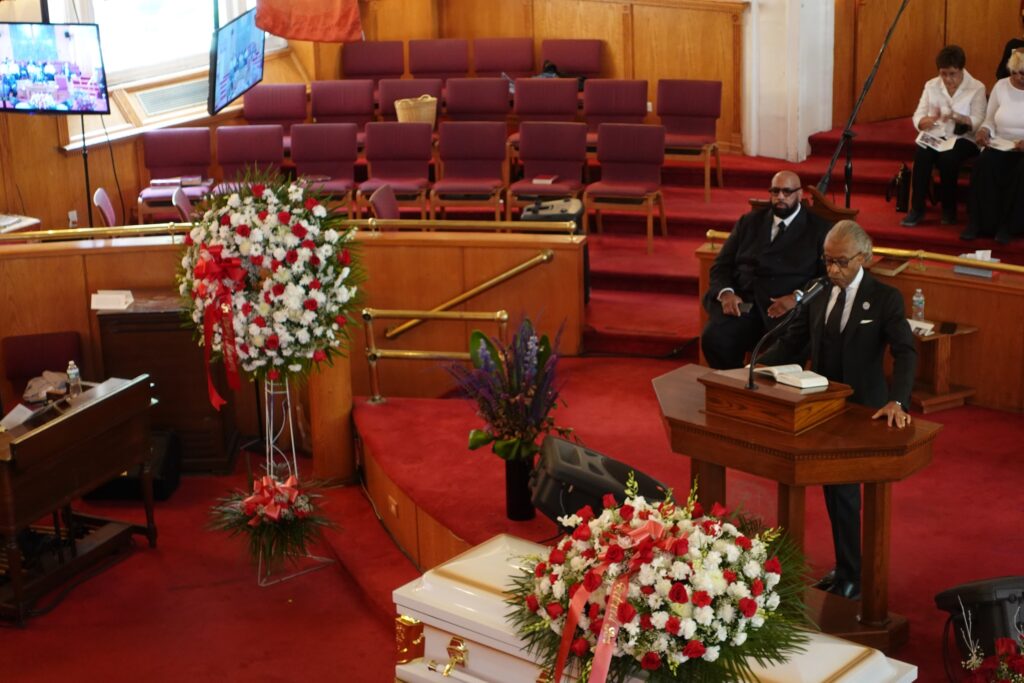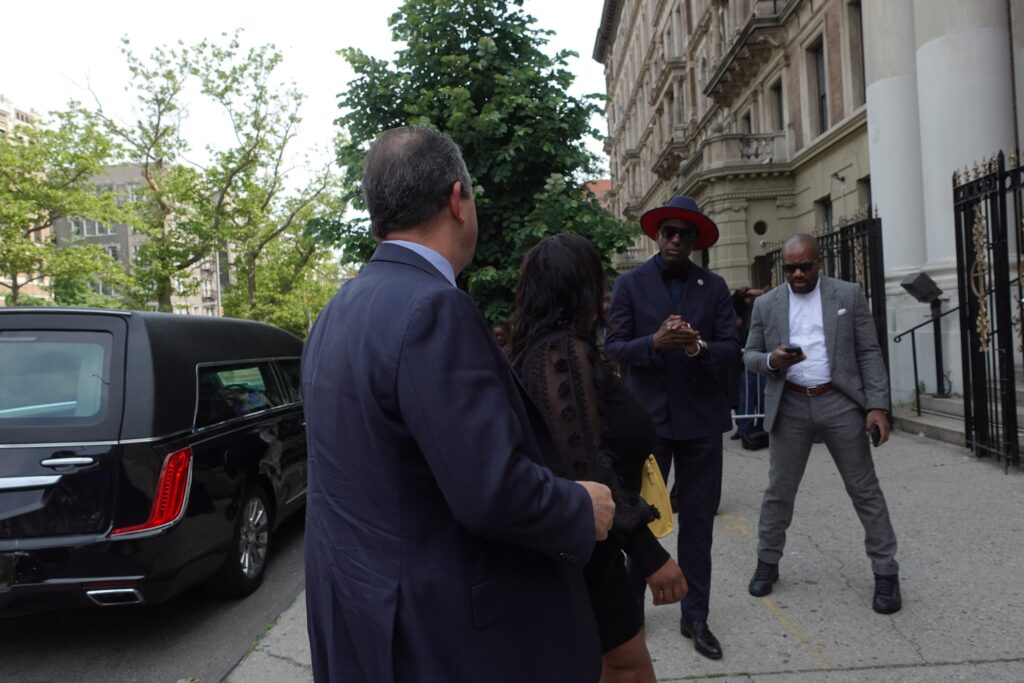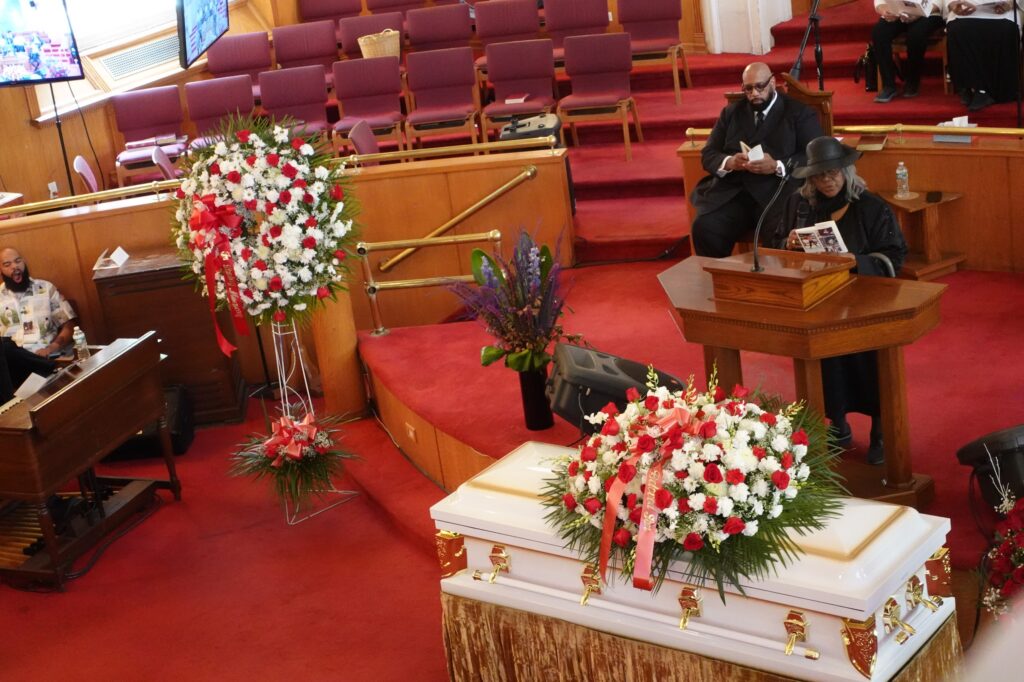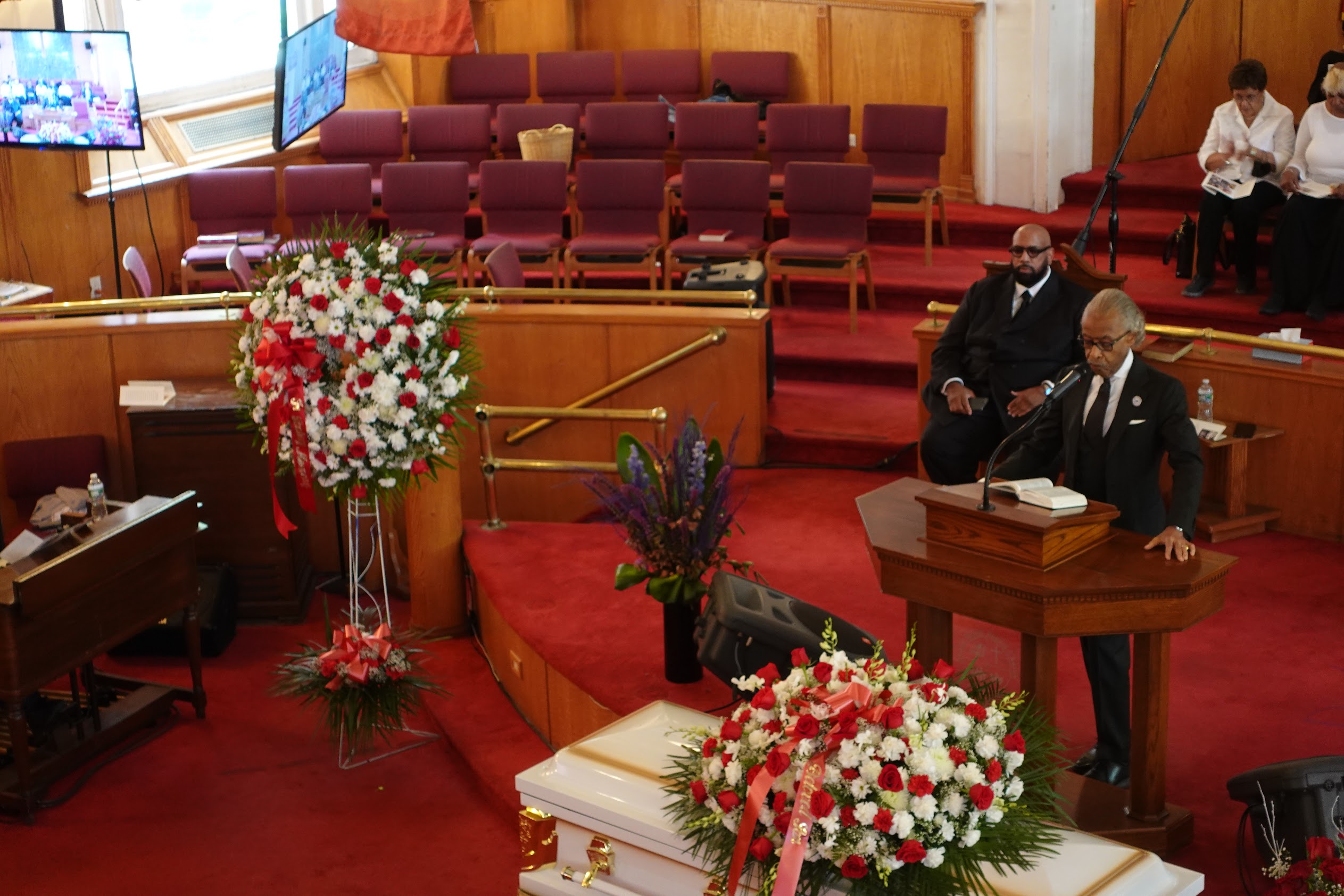HARLEM, N.Y. — Amid promises to work toward improving services for the homeless and the mentally ill, more than 100 mourners carrying signs reading “Justice for Jordan Neely” and “Jordan Neely, Enough Is Enough,” filled the burgundy pews at Mount Neboh Baptist Church in Harlem on Friday morning to remember the young Black man who died in a chokehold on the subway earlier this month.
During a one-hour funeral service, the Rev. Al Sharpton, civil rights activist and founder of the National Action Network, told mourners that Neely’s death at the hands of another subway passenger, a retired U.S. Marine, spotlighted the need for better services for the mentally ill and the homeless.

“We should not not celebrate Jordan’s life, but we should not ignore how he died,” Sharpton said, referring to the fact that passenger Daniel Penny placed Neely in the fatal chokehold after Neely implored passengers for assistance.
“Jordan was not annoying someone on the train; Jordan was crying for help,” said Sharpton, whose organization paid for the funeral.
Sharpton’s eulogy examined the challenges faced by unhoused people and individuals experiencing mental illness, saying that Neely and his peers were “choked” their whole lives by a system that left them without the necessary resources to live safely. He also called attention to statements made by Florida Gov. Ron Desantis, a Republican, who referenced Penny as a “Good Samaritan” and urged his supporters to offer their aid to a defense fund that has raised more than $2 million for Penny.
Also speaking was Yusef Salaam, a New York City Council candidate and a member of “The Exonerated Five,” formerly known as “The Central Park Five,” who were wrongly imprisoned for an attack on a jogger in the park. Salaam likened Neely’s killing to the days of Jim Crow and violence against Black people.
“In the year 2023, we have witnessed a lynching in the public square, a lynching of a Black man who was never given a chance by the system that was designed to keep him oppressed,” Salaam said. “And we’re having the debate about a citizen who was allowed to be the judge, jury and the executioner – and it all happened on camera,” he said.

U.S. Rep. Alexandria Ocasio-Cortez, D-N.Y., along with a number of state officials, also attended the service.
On May 1, Neely, 30, was riding an F subway train when Penny, a 24-year-old U.S. Marine veteran placed Neely in a chokehold, killing him. Witnesses said that Neely had shouted that he was hungry, thirsty and “ready to die” at several passengers before Penny approached him. Penny, helped by two male passengers, restrained Neely on the floor of the train until Neely lost consciousness. Though a four-minute video of the incident shows several passengers telling Penny that he should stop and his actions would kill Neely, none of the bystanders on the train physically intervened.
Penny’s attorneys argued that his actions were made in self-defense and concern that Neely would harm other passengers if he was not restrained. The Manhattan District Attorney’s Office charged Penny with second-degree manslaughter.
Neely’s death garnered national attention this month, spotlighting New York City’s homelessness crisis and the intensified effort to reduce violent acts on the subway. Advocates say that Neely’s death is reflective of the city’s longtime struggle to address a broad-reaching mental health crisis.
“People overlook the fact that there’s a lot of people that are disabled, and it’s not just a physical disability, but you also have people that have mental issues, challenges, maybe special needs. If people were more aware of that, maybe we could prevent some of these incidents from happening,” said Andre Drayton, founder of The Outside Plug LLC, a mental health advocacy organization whose representatives attended the funeral.
“We’re going to always have an ongoing problem until somebody realizes that disabled lives matter too,” Drayton said.
Debate on the issue has become increasingly divided over the years. Advocates like Drayton also voice concerns that hateful rhetoric about individuals experiencing mental illness has made the population more vulnerable to acts of violence and over-policing instead of receiving substantial mental health care.
New York Mayor Eric Adams, a Democrat, did not attend the funeral but said in a speech earlier in the week, “Jordan Neely did not deserve to die.”

During the ceremony, Neely’s aunt, Mildred Mahazu, read Neely’s obituary, delivering insights from Neely’s family life, his lifelong passions for music and entertainment and his early education at Bayonne (New Jersey) High School where he played basketball and soccer. The obituary also detailed the “unbreakable bond” Neely shared with his mother, Christie, who was strangled to death by her boyfriend, Shawn Southerland, in 2007.
Over the years, family members said that his mother’s killing exacerbated Neely’s mental health struggles.
In February of 2022, Adams and New York Gov. Kathy Hochul instituted the New York Subway Safety program, aiming to place homeless New Yorkers in shelters and add 1,200 additional overtime police officer shifts to monitor subway stations.
According to a February report, increased police presence has contributed to an 18% drop in violent incidents; however, many critics of New York Mayor Eric Adams question if the ramping up of law enforcement presence is enough to prevent the repetition of an incident like Neely’s killing.
Sharpton as well as community advocates called on public officials to take action to prevent similar incidents from occurring.
“You hold on to the agencies and city titles, you are somewhere with a big title and no function,” Sharpton said. “In the name of Jordan, we are going to turn this city around.”








